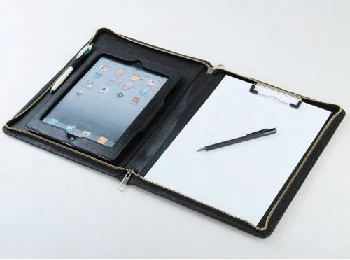
Show Case Your Work!! The Importance Of Portfolios In An Interview..
As a professional recruiter who has been working and recruiting professionals in the environmental, engineering and construction industries for over 18 years now at Webuild Staffing, I have found candidates that have developed project portfolio’s achieve greater success in communicating their experience and abilities during an interview.
Portfolios were originally used in the photography and design industry, but now have become very popular in the architectural, construction, engineering and environmental markets. When used properly they showcase your career history and provide an example of what you have accomplished from a project perspective, as well as, showcasing your professional growth with a solid collection of paper documentation or digital files in one cohesive location.
The portfolio allows you as a candidate to communicate with an interviewer on a deeper level; adding a visual aid will help create a two-way dialog in discussing how you would be a good fit for the position you are interviewing for.
The more experience you have the larger your portfolio will become over the years. It is a good idea to constantly update your portfolio and keep items within the portfolio relevant to the position you are interviewing for. You do not want to present an interviewer with a 100 page document of all the projects you have ever worked on. Keeping the most relevant and important items in the portfolio is best to be able to touch on those projects, reports or items and make the best use of your time during the interview.
When organizing your portfolio; items should be organized in sections; career documentation (resume, references, professional licenses, certifications, letters of reference, transcripts, and educational verification materials), project examples (project descriptions, project documentation, pictures, etc.) and work samples (reports and other documentation you created
that may be beneficial for a potential new employer to review).
If your portfolio is in hard copy, keep it as organized and clean as possible. Use a binder, section dividers / tabs and make sure the documents are securely fastened within and not wrinkled or torn.
As technology has advanced so significantly over the years in presenting information via digital media; you can additionally store your portfolio on a website, in a digital magazine, pdf or personal network in which you can utilize for presenting information to an interviewer via ipad, laptop or mobile phone during your interview. When done properly this can be a very effective method to have in your interviewing arsenal.
As with anything though, this is just one of many tools that candidates should be utilizing to communicate their experience during an interview. Candidates should always keep in mind the best tool to establish rapport and obtain a career opportunity is direct verbal communication with an interviewer the portfolio is only an aid to allow that communication channel to open up.
Michael DeSafey is a leading executive recruiter for professionals in the construction, engineering and environmental industries. He is currently the President of Webuild Staffing (www.webuildstaffing.com). To learn more about Michael or Follow his Blog please visit www.michaeldesafey.com
